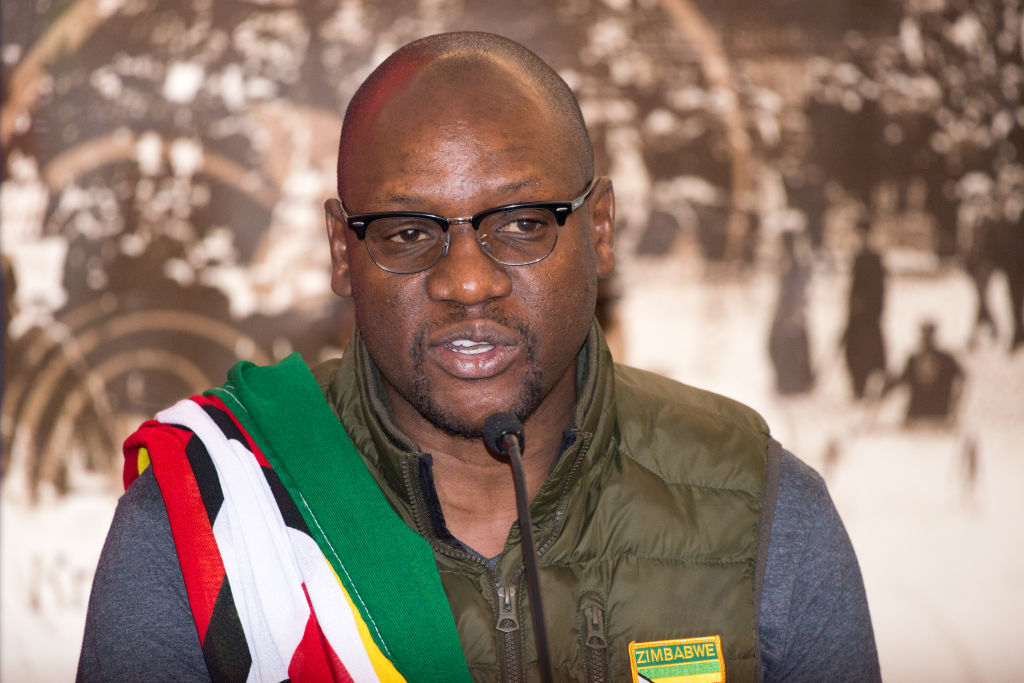There can be no mixed feelings, misconceptions or complications about Robert Mugabe’s legacy. He presided over the destruction of millions of people’s lives over a span of 37 years. Some he murdered in cold blood, others it was a slow roast and for many it was a silent death as they lived in fear of upsetting the brutal ruler that was Robert Mugabe.
My dad called me a few days after I had started the #ThisFlag citizen’s movement in 2016 that challenged Robert Mugabe’s misrule. He was upset, scared and in a panic that I had never seen before. “Stop this craziness immediately!” he shouted. “You have no idea what you’re dealing with. Mugabe and his people will kill you and all of us for this.” I was scared too but I was driven by something else that completely overrode my fears – the urgent need for change. What had Mugabe done to cause my parents’ generation to be so scared that it was unthinkable to say a single bad thing about him, even in private? Mugabe demonstrated one thing very clearly throughout his leadership of Zimbabwe, and it was that he had no regard for anyone’s life except for his own and those of his children.
For political expediency he was not afraid to train a whole brigade of soldiers with one purpose — to subdue if not completely wipe out an entire tribe. The killings of Ndebele people in the south of our country in the early 1980s is not a phase that any good deeds done afterward could erase; nobody can claim ‘but he was a good man.’ Men women and children, many still unaccounted for, were murdered in cold blood and buried in shallow graves just because he felt insecure. Throughout the 1980s and 1990s Mugabe’s desire to be the supreme, unchallenged and lifetime leader of Zimbabwe birthed political violence, forced disappearances, tortures, rigged elections, corruption and an economy that collapsed multiple times in one generation, leaving millions desperately poor.

Sitting in Chikurubi Maximum Security prison in February 2017, the first of many times I was arrested, I couldn’t imagine how this man whom I had loved as a small child had become such a monster. The fact is he hadn’t “become” a monster overnight — he had always been. I just hadn’t experienced it yet. Since July 2016 he had hunted me down and threatened me with expulsion from the country or imprisonment if I persisted with my campaign. He went as far as calling me a foreigner in my own motherland in his desperate attempt to demonize me for speaking out against misrule and corruption. Central intelligence operatives had visited my home, my office, and my church and issued threats to my family and colleagues and even beating up some of them. I’ll never forget that the CIO showed up at my kid’s school wanting to “see” them. I’ll never forget that in the middle of the night while I was in prison, my pregnant wife was besieged by his men who threatened to rape her. His administration charged me with treason for simply demanding a better nation. Arrest after arrest and interrogation upon interrogation, I came face to face with the reality that Robert Mugabe was not the admirable pan-African liberator that many had made him out to be. I speak of experiences that I thankfully survived but what can be said of those who are either no longer alive or those still too scared to speak of the worst fear of their lives.
Whatever good things Mugabe did pale enormously in comparison to his brutality against his own people and the future he robbed us of. The phone call with my dad was a defining moment in how I felt about Robert Mugabe’s legacy. After dad had warned me of the danger of what I was doing I responded, “Dad, I hear you but this man has taken away the dreams of three generations: My grandfather’s, yours and mine. I will not stand by as he takes my children’s dreams too.”
My culture tells us that when a person dies, he must be remembered by his good deeds and that we must not expose the bad things he did as a sign of respect. While I have forgiven Robert Mugabe for what he did to me personally, I find it hard to be silent about how I experienced him. I find it hard to be silent after his death, especially because the hallmark of his leadership is that we had to be silent while he lived. My respect is instead for those who died and were brutalized at his command. But while he transitions from this land, he is leaving scars of his ruthless rule.
More Must-Reads from TIME
- Cybersecurity Experts Are Sounding the Alarm on DOGE
- Meet the 2025 Women of the Year
- The Harsh Truth About Disability Inclusion
- Why Do More Young Adults Have Cancer?
- Colman Domingo Leads With Radical Love
- How to Get Better at Doing Things Alone
- Michelle Zauner Stares Down the Darkness
Contact us at letters@time.com